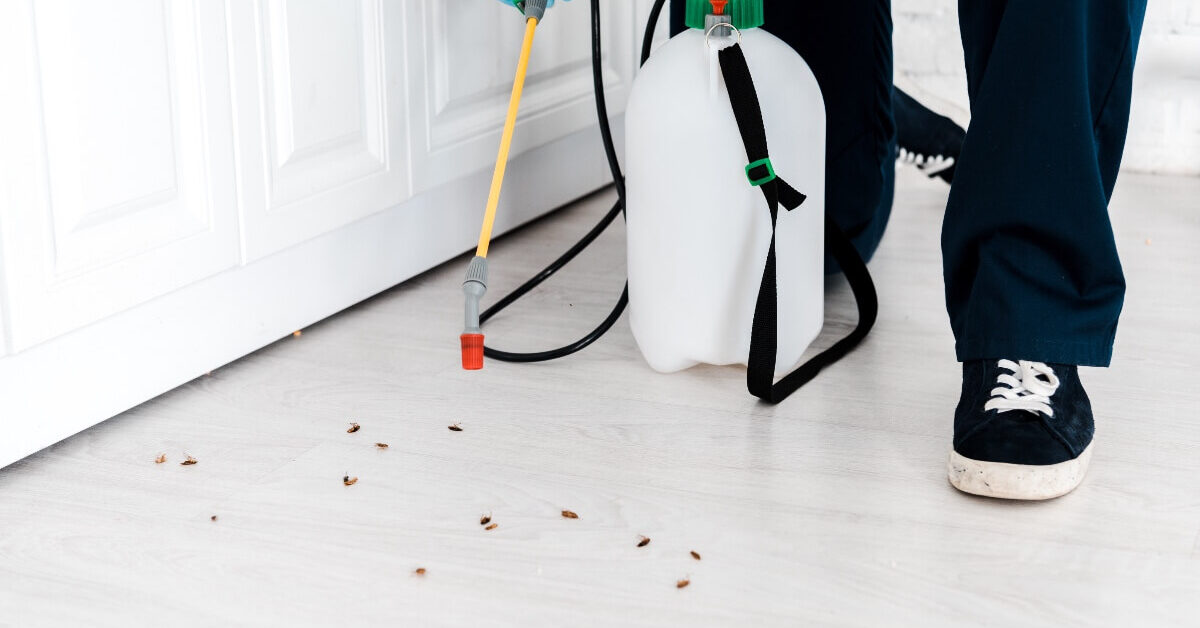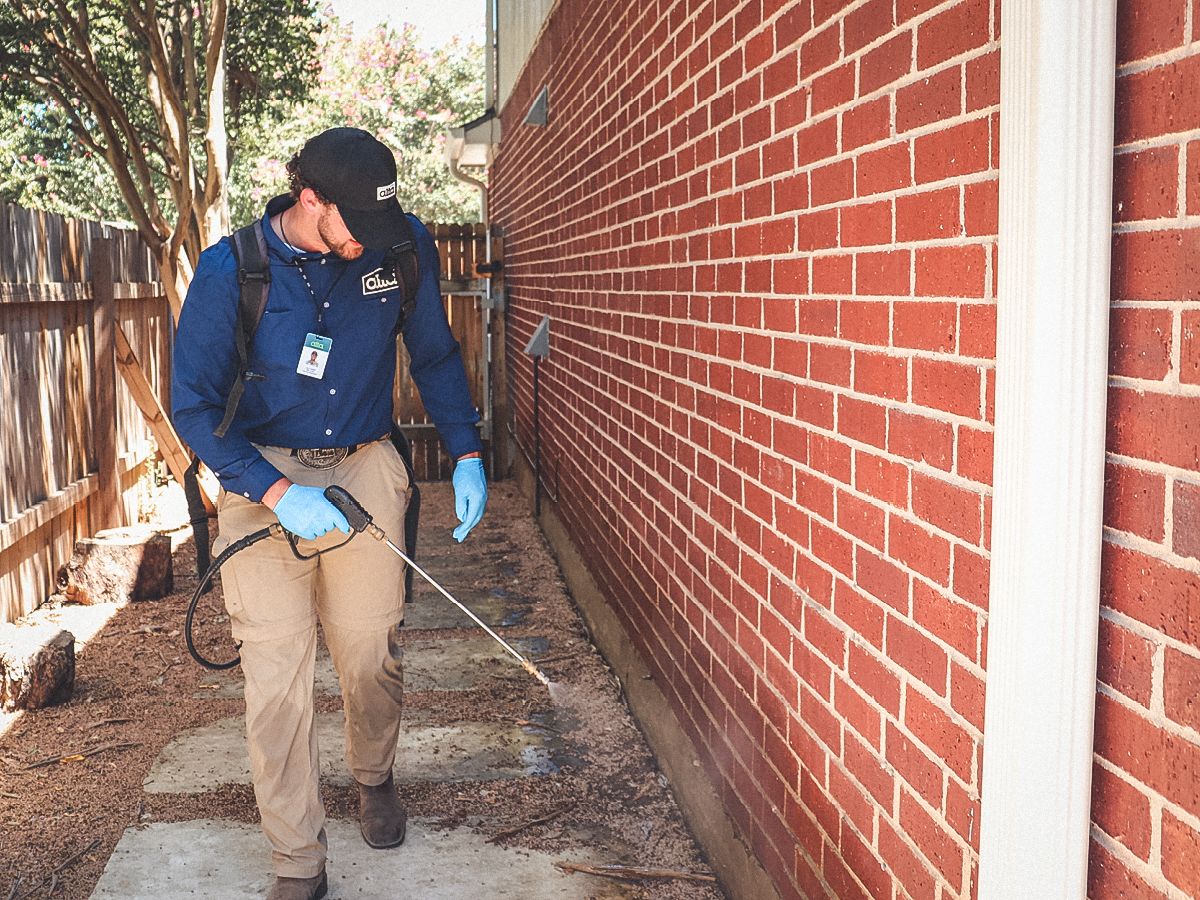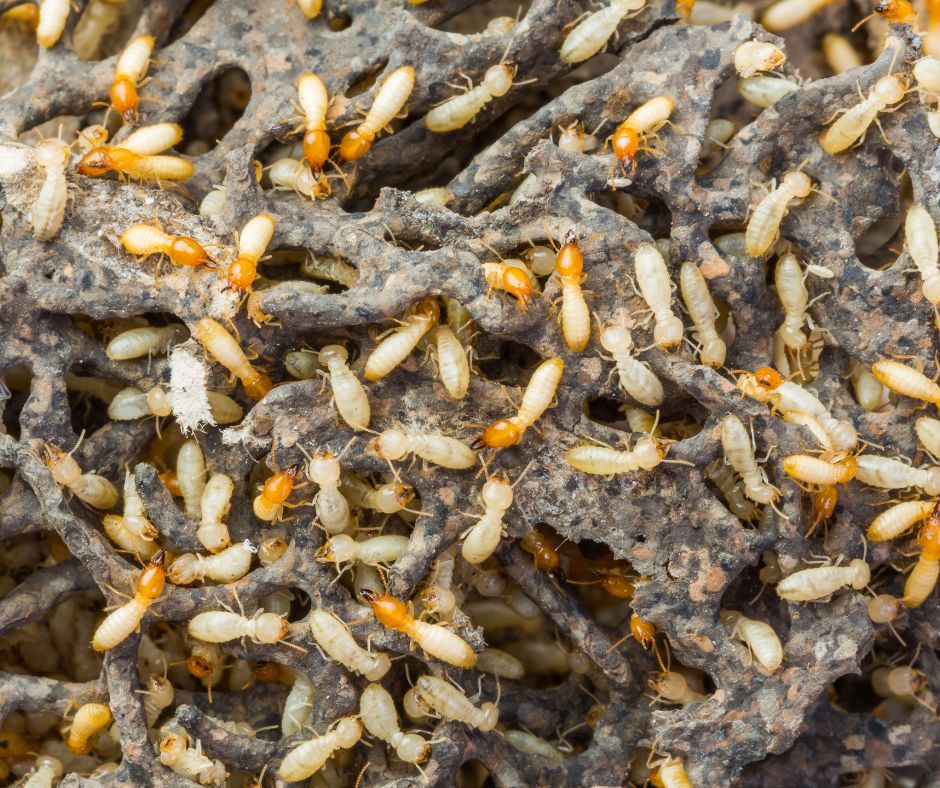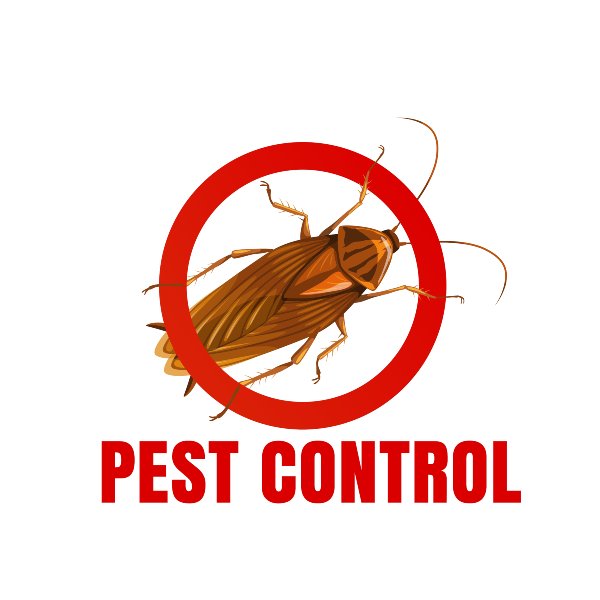Budget-friendly and Dependable Exterminator in Port Charlotte for All Your Pest Control Issues
Budget-friendly and Dependable Exterminator in Port Charlotte for All Your Pest Control Issues
Blog Article
Discover the Importance of Bug Control in Maintaining a Healthy And Balanced Atmosphere and Treatment Techniques

The Function of Bugs in Communities
Pests, frequently seen exclusively as annoyances, play a multifaceted role in ecological communities that is crucial for preserving environmental equilibrium. They add considerably to various environmental procedures, consisting of pollination, nutrition biking, and insect control. For instance, several insect species, such as and butterflies, are essential pollinators for a large range of plants, which consequently supports biodiversity and food manufacturing.
In addition, insects act as target for various predators, producing an important link in food internet. This interdependence ensures the survival of various types and assists manage populations within ecosystems (Termite treatment Port Charlotte). Decomposer insects, such as particular beetles and fungi, are critical in breaking down natural matter, thus improving dirt and assisting in nutrient recycling.
On the other hand, while insects can be useful, their overpopulation or invasion right into non-native settings may disrupt these eco-friendly functions. This complexity emphasizes the relevance of recognizing insect dynamics, as efficient insect management strategies need to think about both their eco-friendly functions and potential impacts on human tasks. Balancing pest visibility while lessening injury is essential for preserving the honesty of environments and ensuring agricultural efficiency.
Wellness Risks Connected With Bugs
The existence of bugs in various settings prolongs past their ecological roles, as they additionally position considerable health risks to people and pets. Several bugs, consisting of rodents, bugs, and bloodsuckers, are providers of conditions that can have significant health and wellness effects. For instance, rodents are known to transmit hantavirus and leptospirosis, both of which can result in severe respiratory and renal issues, specifically.
Insects such as mosquitoes and ticks are infamous for spreading out vector-borne diseases like jungle fever, dengue fever, and Lyme condition. These ailments can cause high morbidity and death prices, specifically in at risk populations. Additionally, bugs like bedbugs and roaches can exacerbate allergic reactions and bronchial asthma, contributing to respiratory troubles in people, especially those with pre-existing problems.
In addition, the presence of parasites can cause psychological stress and discomfort, influencing general wellness. Contamination of food and surfaces by parasite droppings and stays can result in foodborne diseases, highlighting the relevance of preserving hygienic problems. For that reason, recognizing the health threats connected with bugs is critical in acknowledging the need of reliable insect administration approaches to guard human and animal health.

Benefits of Effective Bug Control
Efficient bug control is vital for keeping a healthy and balanced and risk-free setting, as it consistently mitigates the numerous dangers connected with pest problems. One of the main benefits of reliable parasite management is the decrease of health hazards.
Additionally, effective parasite control safeguards building and frameworks from damage. Several insects, like termites and woodworker ants, can trigger comprehensive structural damages that might call for pricey repair services. By proactively handling these property owners, companies and problems can safeguard their investments.
One more considerable advantage is the renovation of total lifestyle. A pest-free setting adds to mental well-being and decreases stress and anxiety connected with invasions. find out this here In addition, reliable bug control cultivates a safer environment for youngsters and family pets, ensuring that homes continue to be shelters without unsafe chemicals and disease-causing microorganisms.
Typical Parasite Control Strategies

In the realm of insect management, different techniques are used to fight invasions properly. These methods can be generally categorized right into three main methods: cultural, mechanical, and chemical controls.
Cultural control includes modifying methods to decrease bug facility, survival, and reproduction. This may consist of plant rotation, correct sanitation, and habitat manipulation, which jointly create an environment less for pest spreading.
Mechanical control utilizes physical approaches to get rid of bugs (Termite treatment Port Charlotte). Techniques such as traps, vacuum cleaners, and barriers are frequently utilized to directly get rid of insects from an area. This method is especially reliable for handling rats and bugs without making use of damaging chemicals
Chemical control involves the application of chemicals to take care of bugs. These materials can be classified right into herbicides, insecticides, and fungicides, each targeting particular sorts of parasites. It is essential to use these chemicals deliberately, adhering to security guidelines and guidelines to reduce potential damage to non-target species and the setting.
Each pest control strategy has its limitations and advantages, and typically, an integrated technique integrating numerous methods yields the best lead to keeping a pest-free environment.
Lasting Parasite Administration Practices
Lasting parasite monitoring practices incorporate a series of techniques made to lessen ecological influence while effectively controlling insect populaces. These methods prioritize the usage of eco-friendly methods over chemical pesticides, consequently minimizing the threat of damage to non-target types, consisting of advantageous pests, wild animals, and humans.
Integrated Bug Monitoring (IPM) is a foundation of sustainable practices, combining organic, social, mechanical, and chemical strategies to handle pests. As an example, organic control involves introducing all-natural predators or bloodsuckers to reduce bug populations. Social techniques, such as crop turning and polyculture, interfere with pest life process and enhance ecosystem resilience.
Mechanical approaches, such as obstacles or catches, can efficiently protect against bug access without chemical intervention. In addition, preserving healthy and balanced ecological communities through appropriate dirt administration, plant health, and biodiversity can naturally mitigate insect concerns.
Education and learning and understanding are essential components, encouraging areas and people to recognize bug dangers early and execute preventative measures. Termite treatment Port Charlotte. By promoting a holistic strategy that stabilizes pest control with environmental integrity, lasting pest administration techniques not only protect frameworks and crops but also add to a much healthier atmosphere for future generations
Final Thought

Recognizing the wellness dangers associated with pests is critical in acknowledging the necessity of reliable insect management approaches to protect human and animal wellness.
Reliable the pest store bug control is essential for maintaining a healthy and secure atmosphere, as it constantly mitigates the various risks associated with pest invasions.Integrated Parasite Monitoring (IPM) is a foundation of lasting methods, incorporating biological, cultural, mechanical, and chemical techniques to manage pests. By comprehending the role of parasites, identifying affiliated health and wellness risks, and employing varied treatment techniques, a sustainable approach to pest administration can be achieved. Integrated Pest Management (IPM) highlights an alternative method that mitigates damage to beneficial organisms about pest control while properly managing insect populaces.
Report this page